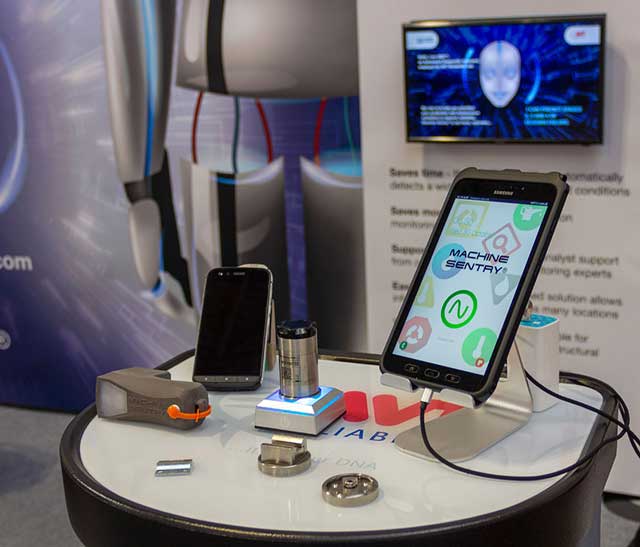
Plant reliability specialist AVT Reliability has launched a new version of its Machine Sentry® cloud-based condition monitoring application with a range of enhanced features.
Machine Sentry® 2.5. delivers key enhancements to Android™ applications of the system, including:
- Integration with Bluetooth® low energy (LE) sensors from any manufacturer
- Support for new, advanced oil quality and vibration sensors
- A simplified measurement import application programme interface (API)
In addition to the option of employing MSF-1, a Machine Sentry® sensor, companies using the Machine Sentry® Android™ application can now add any brand of sensor to the system, by simply copying the sensor definition to the Android™ device’s internal storage and opening it. Once loaded, the new sensor will be able to collect measurements in exactly the same way as MS-F1.
Machine Sentry® 2.5 also enables enhanced oil quality and vibration monitoring capability with the addition of two new compatible sensors. The Tandelta oil quality sensor, connected via the Tandelta OQD Express display, allows the condition of oil to be monitored in situ without the need to extract a sample and send it to an oil lab. Wear or contamination is measured in real time to an accuracy of 0.001%.
The CTC WA102-1A transmitter, for AC312 and AC314 accelerators, has a higher maximum temperature range than MSF-1, with the potential to reach 125°C, and is capable of a higher sample rate, delivering a maximum F-Max value of just over 15kHz.
The simplified measurement API has been developed to make it easy to import devices, channels and measurements from other systems to Machine Sentry®. Data uploaded via the IPA is automatically added to the database.
Ian Newby, IS Development Manager of AVT Reliability®, said: “Machine Sentry® is one of the most advanced cloud-based condition monitoring systems on the market but our ongoing aim is to make it simple and cost-efficient to use.
“The new capabilities offered by Machine Sentry® 2.5 not only expand the range of options to customers, but also make it easier to adopt them, without the need for detailed technical knowledge of the system.”

